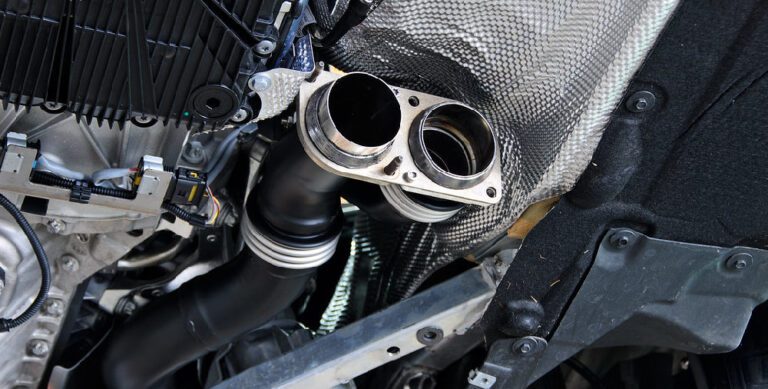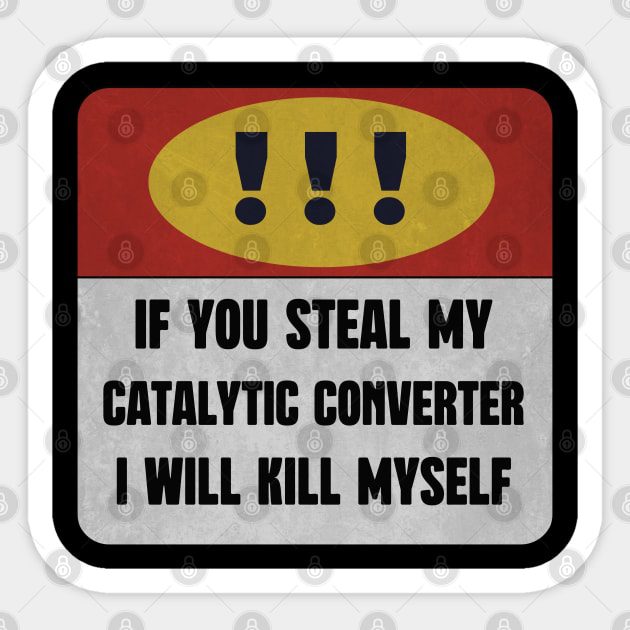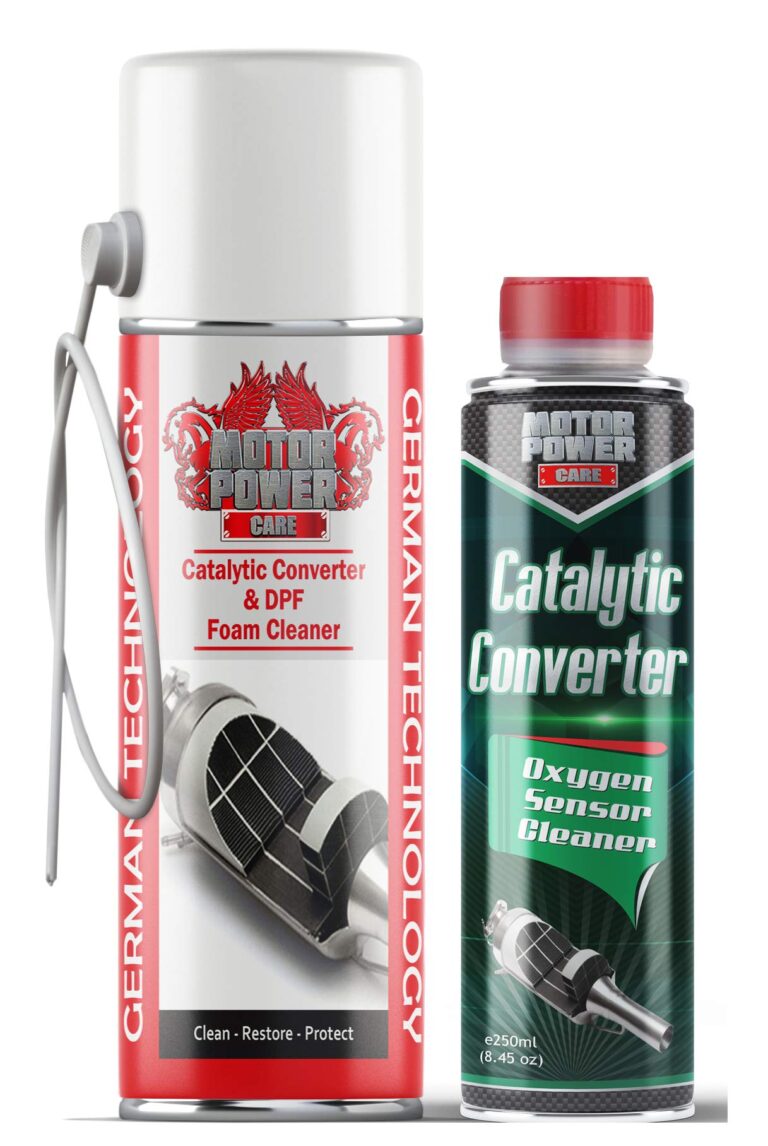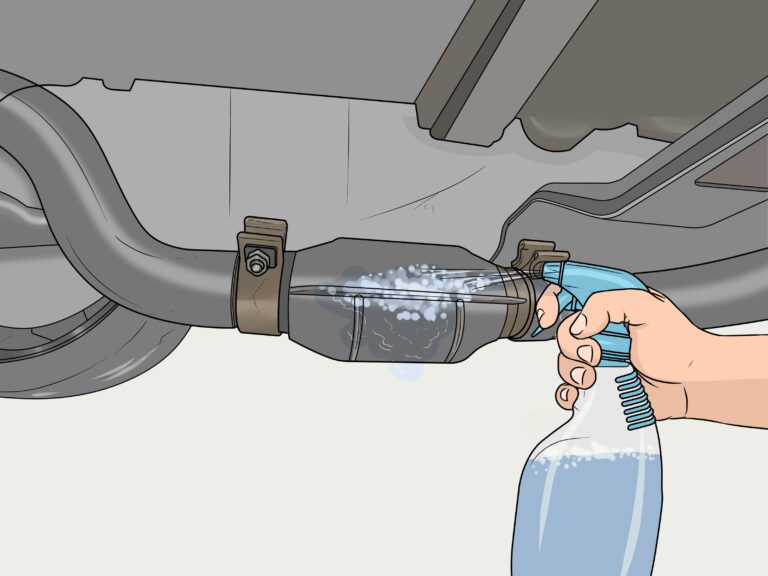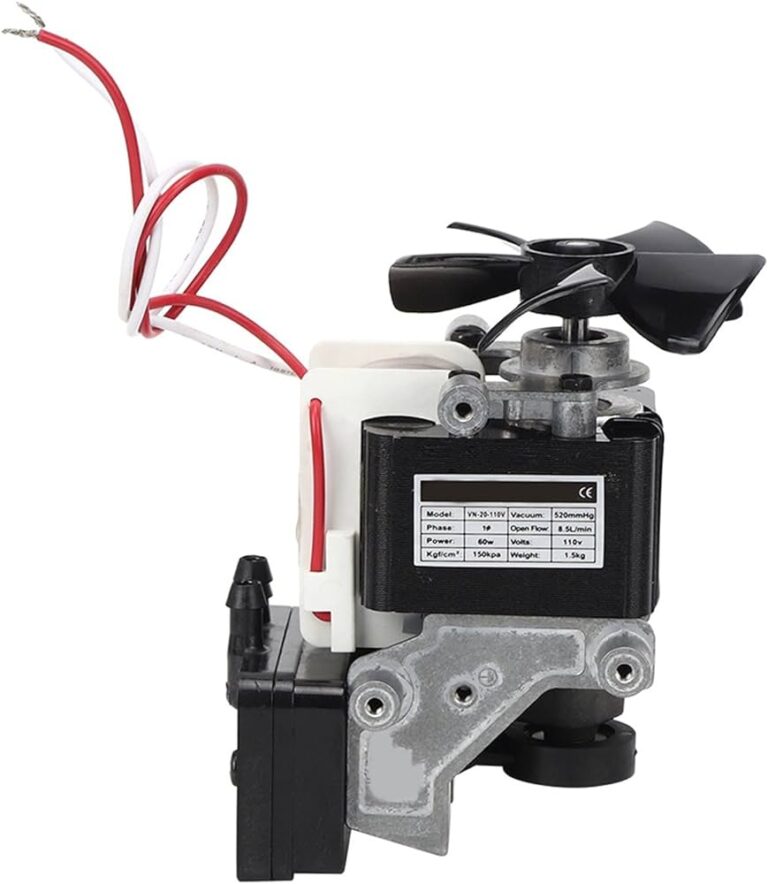Catalytic Converter Sounds : Unveiling the Hidden Symphony
Catalytic converter sounds can indicate problems in your vehicle’s exhaust system, such as rattling or hissing noises. These sounds may be caused by a damaged or failing catalytic converter, exhaust leak, or loose heat shield.
Prompt diagnosis and repair are necessary to prevent further damage and ensure the proper functioning of your vehicle’s emissions control system. Are you hearing strange sounds coming from your vehicle’s exhaust system? It could be a sign of trouble with your catalytic converter.
A rattling or hissing noise might indicate a damaged or failing converter, an exhaust leak, or a loose heat shield. These issues can lead to more extensive damage and could compromise the efficiency of your vehicle’s emissions control system. To prevent further problems, it’s important to address these sounds promptly. We will explore various catalytic converter sounds, what they mean, and what actions you should take to resolve them.
Introduction To Catalytic Converter Sounds
Introduction to Catalytic Converter Sounds
The catalytic converter is a crucial component of a vehicle’s emission control system, working to reduce harmful pollutants released into the environment. As the exhaust gases flow through the catalytic converter, a series of chemical reactions takes place, transforming harmful components such as carbon monoxide and nitrogen oxides into less harmful substances like carbon dioxide and nitrogen.
The role of the catalytic converter in vehicle emissions control cannot be understated. By reducing the emission of harmful pollutants, it helps to improve air quality and protect public health.
Overview of the Different Types of Catalytic Converters
There are several types of catalytic converters used in vehicles today, including three-way catalytic converters, dual-bed catalytic converters, and diesel oxidation catalysts. Each type has its unique design and functionality, tailored to a specific type of engine and emission requirements.
Introduction to the Sounds Produced by Catalytic Converters
While catalytic converters are primarily known for their role in emission control, they can also produce various sounds that may indicate a problem. Common sounds include rattling or metallic noises, hissing or whistling sounds, and exhaust restrictions causing a change in the engine’s performance.
Understanding these sounds and their potential causes is essential for diagnosing and addressing any catalytic converter issues efficiently.
Indicators Of A Malfunctioning Catalytic Converter
Indicators of a malfunctioning catalytic converter often go unnoticed until it’s too late. Recognizing common symptoms of a faulty catalytic converter is crucial in ensuring timely repairs, which can prevent further damage and costly repairs down the line.
One of the most subtle sounds that may indicate a problem with your catalytic converter is a rattling noise. This noise is typically a result of loose internal components or a damaged substrate. Another sound to be aware of is a hissing noise, which may signify a leak in the exhaust system or a damaged converter.
Ignoring these sounds can have potential consequences for your vehicle and the environment. A malfunctioning catalytic converter can lead to reduced engine performance, decreased fuel efficiency, and increased emissions. In some cases, it may even cause your car to fail emissions tests. Addressing the issue promptly can help avoid these issues and ensure your vehicle operates at its best.
Understanding Catalytic Converter Sound Variations
Identification of different types of sounds produced by a catalytic converter can provide valuable insights into potential issues within the vehicle’s exhaust system. By recognizing these variations, car owners and mechanics can diagnose and address problems promptly.
The first step in linking specific sounds to potential issues is to familiarize oneself with the different noises that a catalytic converter can produce. Common sounds include rattling, hissing, and metallic clanking. Each sound may indicate a different underlying problem, such as a loose heat shield, a leaking gasket, or a broken substrate.
Volume, pitch, and duration play a significant role in determining sound variations. Louder and more prolonged noises often suggest more severe issues, while higher-pitched sounds may indicate a problem with the exhaust system’s components.
Regular inspections and maintenance can help ensure the proper functioning of the catalytic converter, preventing potential damage and expensive repairs. Additionally, addressing any unusual sounds promptly can help avoid further complications and ensure a smoother driving experience.
Common Catalytic Converter Sounds And Their Causes
htmlCatalytic Converter Sounds
Common Catalytic Converter Sounds and Their Causes
Rattling sounds: Causes and potential solutions
A rattling sound coming from your catalytic converter can be caused by a loose heat shield. Over time, the heat shield may become detached and start vibrating, resulting in the rattling noise. Another possible cause could be a damaged catalytic converter core, causing loose debris to rattle around inside. It is important to address these issues promptly to prevent further damage and potential failure of the catalytic converter. If you hear a rattling sound, it is recommended to have your vehicle inspected by a qualified mechanic who can diagnose the exact cause and provide the appropriate solution. This may involve tightening or replacing the heat shield, or replacing the catalytic converter if necessary.
Hissing sounds: Identifying potential issues and fixing them
A hissing sound coming from your catalytic converter can indicate a leak in the exhaust system. This could be caused by a cracked or damaged catalytic converter, or a loose connection between the converter and other components. Additionally, a hissing sound may suggest a potential issue with the oxygen sensor or a vacuum leak in the engine. It is important to address these issues promptly as they can affect the performance and efficiency of your vehicle. If you notice a hissing sound, it is recommended to have your vehicle inspected by a professional to identify the exact problem and perform the necessary repairs.
Squealing noises: Underlying problems and troubleshooting options
Squealing noises coming from your catalytic converter can be a result of a worn-out or damaged belt in the engine. The belt that drives the accessories of the engine, such as the alternator, power steering, or air conditioning compressor, may be slipping or misaligned, causing the squealing noise. Another possible cause could be a worn-out pulley or tensioner. To troubleshoot the issue, you can visually inspect the belts and pulleys for any signs of wear or damage. If the belts appear worn or cracked, or the pulleys are misaligned or damaged, they may need to be replaced. It is recommended to consult a qualified mechanic for a thorough inspection and proper diagnosis.
Unveiling The Diagnostics Of Catalytic Converter Sounds
A catalytic converter plays a crucial role in reducing harmful emissions from a vehicle’s exhaust system. However, over time, it may develop certain issues that can be detected through specific sound patterns. Utilizing diagnostic tools and techniques can aid in identifying these sounds as indicative of catalytic converter problems. By analyzing sound variations, mechanics can narrow down potential issues and determine the appropriate course of action. Collaboration between mechanics and vehicle owners is essential in the diagnostic process, as it allows for a more accurate diagnosis and effective resolution of catalytic converter problems. These collaborative efforts ensure that the necessary repairs or replacements are carried out promptly, maintaining the vehicle’s performance and reducing environmental impact.
Maintaining And Preventing Catalytic Converter Sound Issues
A properly functioning catalytic converter is essential for the smooth operation of your vehicle. However, it is not uncommon for catalytic converters to develop sound issues over time. Regular maintenance can help prevent these problems and preserve the health of your catalytic converter.
To maintain your catalytic converter, it is important to address potential causes of sound issues before they escalate. This includes checking for loose or damaged components, such as heat shields or mounting brackets, and fixing them promptly. Additionally, regular inspection and cleaning of the catalytic converter can help prevent blockages and reduce the risk of sound issues.
Proper installation and usage of catalytic converters also play a vital role in preventing sound issues. Ensure that the catalytic converter is installed correctly, following manufacturer guidelines. It is important to use the right type and size of catalytic converter for your vehicle to avoid fitment and performance issues.
Upgrades And Modifications For Enhanced Performance
html| Aftermarket options for improved catalytic converter performance |
|---|
| Altering sound characteristics for those seeking a specific sound experience |
| Understanding legal restrictions and regulations surrounding modifications |
When it comes to enhancing the performance of your catalytic converter, there are various aftermarket options available that can significantly improve its efficiency. These upgrades and modifications not only enhance the overall performance of your vehicle but also provide a better driving experience.
If you are someone who is looking for a specific sound experience, various aftermarket options can alter the sound characteristics of your catalytic converter. From aggressive rumbling tones to refined and subtle purrs, the options are vast and can help you achieve the desired sound.
However, it is important to understand and abide by the legal restrictions and regulations surrounding modifications. Modifying your catalytic converter might have legal implications depending on your jurisdiction. Therefore, it is crucial to stay informed about the specific rules and regulations in your area to avoid any potential legal issues.

Credit: newsroom.bugatti.com
Extending The Lifespan Of Catalytic Converters
Tips For Prolonging The Lifespan Of Catalytic Converters
Proper care and maintenance practices can significantly extend the lifespan of your catalytic converter. Firstly, it is important to have your vehicle regularly serviced. Routine maintenance such as oil changes, spark plug replacements, and fuel system checks can prevent potential issues that may affect the efficiency of the catalytic converter.
Promoting eco-friendly driving habits can also reduce the strain on catalytic converters. Avoiding aggressive driving and excessive idling can help minimize wear and tear on the converter. Additionally, using the recommended grade of fuel, ensuring proper installation of aftermarket accessories, and promptly addressing any emerging engine issues can all contribute to the longevity of the catalytic converter.
Frequently Asked Questions Of Catalytic Converter Sounds
What Kind Of Noise Does A Bad Catalytic Converter Make?
A bad catalytic converter can make a rattling or grinding noise, indicating internal damage.
What Does It Sound Like When You Need A Catalytic Converter?
A bad catalytic converter may cause strange noises like rattling or hissing.
Does A Bad Catalytic Converter Sound Loud?
Yes, a bad catalytic converter can sound loud.
Is It Safe To Drive With A Rattling Catalytic Converter?
Driving with a rattling catalytic converter is not safe. It could lead to further damage to your vehicle’s exhaust system and increase emissions. Get it checked by a professional for repairs to ensure your safety on the road.
Conclusion
To sum up, familiarizing yourself with the different sounds produced by a catalytic converter is crucial for maintaining your vehicle’s health. Early detection of any abnormal noises can help identify potential problems and prevent costly repairs. Whether it’s a hissing sound, rattling noise, or a high-pitched squeal, it’s advisable to consult a professional mechanic for further diagnosis.
By paying attention to these sounds, you can ensure the longevity and efficiency of your catalytic converter, ultimately saving you time and money in the long run.



